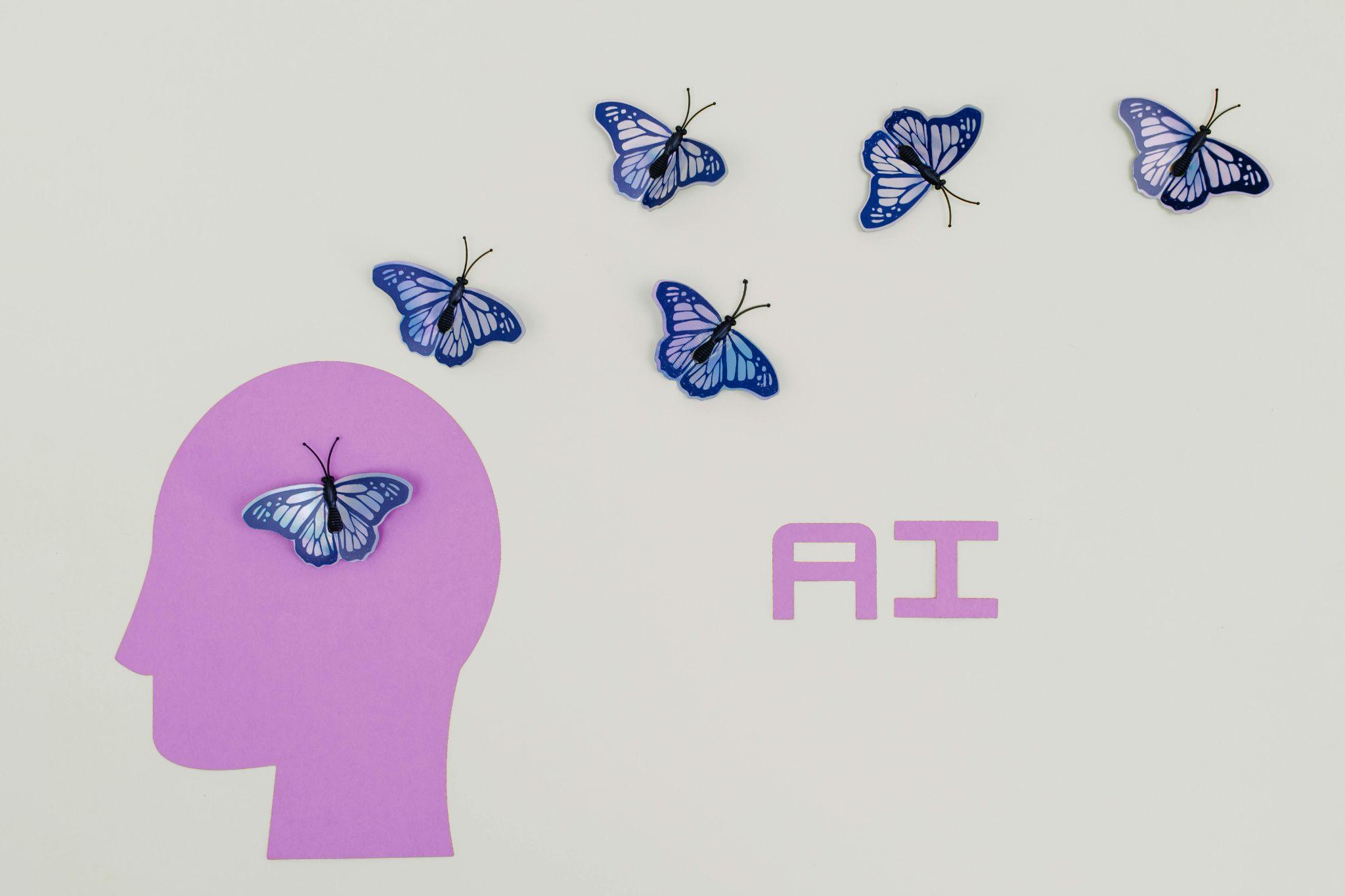Artificial Intelligence is revolutionizing digital marketing by transforming how brands connect with customers, optimize campaigns, and drive revenue growth. This technological evolution has shifted marketing from intuition-based decision making to data-driven strategies that deliver personalized experiences at scale. According to Salesforce’s State of Marketing Report, 84% of marketers already use AI, with the technology fundamentally changing customer acquisition, retention, and engagement strategies across all industries.
The Strategic Shift: From Manual to AI-Driven Marketing
The marketing landscape has undergone a dramatic transformation from manual campaign management to intelligent automation systems that process vast amounts of data in real-time. AI-powered platforms now handle complex tasks that previously required extensive human resources, enabling marketers to focus on strategic planning and creative innovation while machines optimize performance continuously.
Machine Learning for Hyper-Personalization
Machine learning algorithms analyze customer behavior patterns to create highly targeted experiences that adapt in real-time based on individual preferences and actions. These systems process millions of data points to predict what content, products, or messages will resonate with each unique customer.
Common Machine Learning Applications:
- Dynamic email content that changes based on recipient behavior and preferences
- Product recommendations powered by collaborative filtering and purchase history analysis
- Website personalization that adjusts layouts, offers, and messaging for each visitor
- Customer journey mapping that identifies optimal touchpoints and timing
- Predictive lead scoring that prioritizes prospects based on conversion likelihood
- Real-time content optimization that tests and adapts messaging across channels
Predictive Analytics: Anticipating Customer Behavior
Predictive analytics leverages historical data and machine learning to forecast future customer actions, enabling proactive marketing strategies rather than reactive responses. This capability allows brands to anticipate needs, prevent churn, and optimize resource allocation.
| Analytics Type | Traditional Method | AI-Powered Method | Accuracy Improvement |
|---|---|---|---|
| Customer Lifetime Value | Historical averages | ML behavioral modeling | 65% increase |
| Churn Prediction | Rule-based triggers | Neural network analysis | 78% increase |
| Demand Forecasting | Seasonal patterns | Multi-variable AI models | 54% increase |
| Price Optimization | Manual A/B testing | Dynamic algorithmic pricing | 43% increase |
AI-Powered Content & Creative Production
Artificial intelligence has democratized content creation by enabling marketers to produce high-quality text, images, and videos at unprecedented speed and scale. These tools augment human creativity rather than replace it, allowing teams to focus on strategy and refinement while AI handles initial production.
Generative Content Tools (Text, Image, Video)
Modern generative AI platforms offer sophisticated content creation capabilities that maintain brand consistency while producing diverse outputs for different channels and audiences.
| Tool Category | Output Type | Cost Range | Best Use Case |
|---|---|---|---|
| GPT-4/Claude | Text content | $20-100/month | Blog posts, ad copy, emails |
| DALL-E/Midjourney | Static images | $10-60/month | Social media, display ads |
| Runway/Synthesia | Video content | $15-300/month | Product demos, training |
| Copy.ai/Jasper | Marketing copy | $29-109/month | Sales pages, descriptions |
| Canva AI | Design templates | $12-30/month | Social graphics, presentations |
Automated Campaign Creation & Testing
AI-driven automation streamlines campaign development by handling repetitive tasks and optimizing performance through continuous testing and refinement.
Tasks AI Automates in Campaign Management:
- Audience segmentation based on behavioral data and predictive modeling
- Creative asset generation including headlines, descriptions, and visual elements
- A/B test setup with statistical significance calculations and winner determination
- Budget allocation across channels based on performance predictions
- Bid optimization for programmatic advertising platforms
- Performance monitoring with automated alerts for significant changes
- Reporting generation with actionable insights and recommendations
Smarter Ad Buying & Media Optimization

AI algorithms have transformed digital advertising by enabling real-time bidding decisions and budget optimization that would be impossible for human teams to manage manually. These systems process billions of data points to maximize return on ad spend while minimizing waste.
Programmatic Advertising & Dynamic Bidding
Programmatic advertising platforms use machine learning to automate media buying decisions in milliseconds, evaluating audience quality, placement value, and conversion probability for each impression opportunity.
Key Benefits of AI-Powered Bidding:
- Real-time optimization adjusts bids based on current performance data
- Fraud detection identifies and blocks invalid traffic automatically
- Audience modeling discovers high-value customer segments
- Cross-channel coordination prevents bid competition between campaigns
- Predictive scaling anticipates traffic patterns and adjusts budgets accordingly
Budget Allocation with AI Agents
AI agents continuously monitor campaign performance across channels and automatically redistribute budgets to maximize overall return on investment. Platforms like Adobe’s AI agents and Google’s Smart Bidding use sophisticated algorithms to optimize spending decisions.
According to Adobe’s Digital Marketing Report, brands using AI-powered budget allocation see an average 23% improvement in campaign efficiency compared to manual management approaches.
Conversational AI & Customer Engagement
Conversational AI has transformed customer interactions by providing instant, personalized responses that improve satisfaction while reducing operational costs. These systems handle routine inquiries while escalating complex issues to human agents.
Chatbots & Virtual Assistants
AI-powered chatbots deliver 24/7 customer support with natural language processing capabilities that understand context and intent, providing relevant solutions across multiple channels.
Key Performance Metrics for AI Chatbots:
- Response time: Average 2.3 seconds vs 5-10 minutes for human agents
- Resolution rate: 67% of inquiries resolved without human intervention
- Customer satisfaction: 78% positive ratings for AI interactions
- Cost reduction: 40% decrease in customer service operational expenses
- Availability: 24/7 support coverage without staffing limitations
AI-Powered Social Listening
Social listening platforms use natural language processing to analyze millions of social media mentions, reviews, and comments to extract actionable insights about brand perception and market trends.
| Metric Category | Traditional Tracking | AI-Enhanced Analysis | Business Impact |
|---|---|---|---|
| Sentiment Analysis | Manual categorization | Emotion recognition | Real-time reputation management |
| Trend Detection | Keyword monitoring | Predictive pattern analysis | Proactive campaign planning |
| Competitor Intelligence | Basic mention tracking | Strategic insight extraction | Market positioning advantages |
| Influencer Identification | Follower count focus | Engagement quality assessment | ROI-driven partnerships |
Real-Time Insights & Unified Data Platforms
AI-powered analytics platforms integrate data from multiple sources to provide comprehensive views of customer behavior and campaign performance, enabling data-driven decision making at unprecedented speed and accuracy.
Unified Customer Data & Analytics Dashboards
Customer data platforms use AI to consolidate information from various touchpoints, creating single customer views that inform personalized marketing strategies and improve customer lifetime value.
Essential Dashboard Features:
- Real-time performance monitoring with automated alert systems
- Cross-channel attribution showing complete customer journey mapping
- Predictive forecasting for revenue and conversion predictions
- Automated reporting with customizable stakeholder summaries
- Anomaly detection identifying unusual patterns requiring attention
- Recommendation engines suggesting optimization opportunities
Agentic AI for Autonomous Campaign Management
AI agents represent the next evolution in marketing automation, capable of managing entire campaign workflows with minimal human intervention while maintaining strategic alignment with business objectives.
Autonomous Campaign Management Flow:
- Data ingestion from multiple sources including CRM, web analytics, and social platforms
- Audience analysis using machine learning to identify optimal target segments
- Creative generation producing multiple ad variations for testing
- Campaign launch with automated platform setup and initial optimization
- Performance monitoring with continuous bid and budget adjustments
- Reporting synthesis generating insights and recommendations for stakeholders
Creative Risk-Taking: AI Amplifying Innovation

Artificial intelligence enables marketers to experiment with bold creative concepts by providing data-driven insights that reduce risk while amplifying innovative approaches. This technology allows teams to test ideas quickly and cost-effectively before full-scale implementation.
Testing Creative Concepts Safely
Generative AI tools allow marketers to explore diverse creative directions through rapid prototyping and audience simulation, reducing the time and cost associated with traditional creative development processes.
Benefits of AI-Powered Creative Testing:
- Rapid iteration enabling hundreds of concept variations in hours
- Audience simulation predicting responses before campaign launch
- Cost reduction eliminating expensive production for unsuccessful concepts
- Data-driven creativity combining human intuition with algorithmic insights
- Risk mitigation identifying potential issues before public exposure
Balancing Automation and Human Insight
Human-AI collaboration represents the optimal approach to marketing innovation, combining machine efficiency with human creativity and strategic thinking.
Best Practices for Human-AI Synergy:
- Define clear boundaries between automated and human-controlled processes
- Maintain creative oversight ensuring AI outputs align with brand values
- Invest in training developing team skills for AI tool optimization
- Preserve human judgment for strategic decisions and ethical considerations
- Regular performance review assessing AI effectiveness and adjustment needs
Challenges & Ethical Considerations in AI Marketing
AI implementation in marketing presents significant challenges including data privacy concerns, algorithmic bias, and the need for new skills and processes. Organizations must address these issues proactively to build sustainable AI-powered marketing strategies.
Data Privacy & Bias in AI Models
Data governance becomes critical as AI systems process increasingly sensitive customer information, requiring robust privacy protections and bias mitigation strategies.
| Concern | Risk Level | Safeguard Strategy |
|---|---|---|
| Customer data privacy | High | Encryption, anonymization, consent management |
| Algorithmic bias | Medium | Diverse training data, regular audits |
| Transparency requirements | Medium | Explainable AI, clear disclosure policies |
| Regulatory compliance | High | GDPR/CCPA alignment, legal review processes |
Skill Gaps: Need for AI Literacy
AI adoption requires significant investment in team training and new hiring to bridge the gap between traditional marketing skills and AI-powered capabilities.
Essential AI Training Roadmap:
- Foundational AI concepts including machine learning basics and common applications
- Platform-specific training for marketing automation and analytics tools
- Data analysis skills focusing on interpretation and strategic application
- Ethical AI practices emphasizing privacy, bias prevention, and transparency
- Cross-functional collaboration working effectively with data science and IT teams
Future Trends: Where AI & Marketing Meet Next
Next-generation AI technologies will further transform marketing through immersive experiences, voice interactions, and integration with emerging platforms that change how consumers discover and engage with brands.
Voice, Visual & Immersive AI Experiences
Emerging AI formats are expanding beyond traditional text and display advertising to include voice-activated campaigns, visual search optimization, and augmented reality experiences.
Cutting-Edge AI Marketing Formats:
- Voice search optimization for smart speakers and voice assistants
- Visual search campaigns enabling product discovery through image recognition
- Augmented reality ads providing immersive brand experiences
- AI-generated virtual influencers creating consistent brand ambassadors
- Personalized audio content adapting podcasts and music to individual preferences
Real-Time Brand Visibility in AI Interfaces
AI-powered search engines and chatbots are becoming primary discovery channels, requiring brands to optimize for conversational queries and AI-generated recommendations rather than traditional search results.
Conclusion
Artificial Intelligence is revolutionizing digital marketing by transforming every aspect of customer engagement, from initial awareness through post-purchase loyalty. The technology enables unprecedented personalization, automation, and insights while creating new challenges around privacy, ethics, and skill development. Successful marketers must embrace AI strategically, balancing automation with human creativity and maintaining ethical standards while pursuing competitive advantages. As AI capabilities continue advancing, the organizations that invest thoughtfully in these technologies while preserving human insight and brand authenticity will dominate the future marketing landscape.

